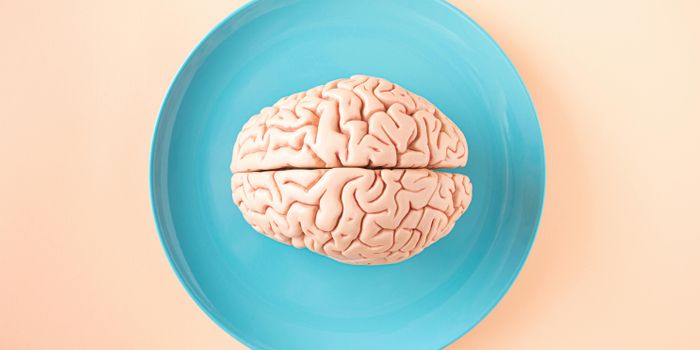19th-century phrenologists coined the phrases “highbrow” and “lowbrow”, correlating the brain size to intelligence. But is it true?
It is true that brain sizes vary across humans and that men tend to have a slightly larger brain than women. Our ancestors Homo neanderthalensis, also had larger brains than modern humans. However, they are extinct, and we seem to outcompete them. Although intelligent people do tend to have more successful lives, this depends on several genetic, environmental factors and socio-economic situations as well.

Average brain weight for males and females over the lifespan. From the study Changes in brain weights during the span of human life. Source: Wikipedia.
Identifying the connection between the brain size to smartness has become much more plausible due to accuracy in estimating the brain size by using technologically advanced neuroimaging methods. However, research published so far had been riddled with fallacies and bias.
A new study, the largest of its kind, led by Gideon Nave of the University of Pennsylvania's Wharton School and Philipp Koellinger of Vrije Universiteit Amsterdam, has clarified the connection. Using MRI-derived information about brain size in association with cognitive performance test results and educational-attainment measures obtained from more than 13,600 people, the researchers found that, as previous studies have suggested, a positive relationship does exist between brain volume and performance on cognitive tests. But that finding comes with important caveats.
"The effect is there," says Nave, an assistant professor of marketing at Wharton. "On average, a person with a larger brain will tend to perform better on tests of cognition than one with a smaller brain. But size is only a small part of the picture, explaining about 2 percent of the variability in test performance. For educational attainment, the effect was even smaller: an additional 'cup' (100 cubic centimeters) of the brain would increase the average person's years of schooling by less than five months." Koellinger says "this implies that factors other than this one single factor that has received so much attention across the years account for 98 percent of the other variation in cognitive test performance."
"Yet, the effect is strong enough that all future studies that will try to unravel the relationships between more fine-grained measures of brain anatomy and cognitive health should control for total brain volume. Thus, we see our study as a small, but important, contribution to better understanding of differences in cognitive health."
Nave and Koellinger's collaborators on the work, which is published in the Journal of Psychological Science, included Joseph Kable, Baird Term Professor in Penn's Department of Psychology; Wi Hoon Jung, a former postdoctoral researcher in Kable's lab; and Richard Karlsson Linnér, a postdoc in Koellinger's lab.
Earlier studies had consistently identified a correlation between brain size and cognitive performance, but the relationship seemed to grow weaker as studies included more participants, so Nave, Koellinger, and colleagues hoped to pursue the question with a sample size that dwarfed previous efforts.
The study relied on a recently amassed dataset, the UK Biobank, a repository of information from more than half-a-million people across the United Kingdom. The Biobank includes participants' health and genetic information as well as brain scan images of a subset of roughly 20,000 people, a number that is growing by the month.
"This gives us something that never existed before," Koellinger says. "This sample size is gigantic—70 percent larger than all prior studies on this subject put together—and allows us to test the correlation between brain size and cognitive performance with greater reliability."
The researches addressed the issues with measuring the cognitive performance by incorporating models that accounted for factors like height, socioeconomic status, genetic ancestry along with the cognitive questionnaires.
The findings are somewhat intuitive. "It's a simplified analogy, but think of a computer," Nave says. "If you have more transistors, you can compute faster and transmit more information. It may be the same in the brain. If you have more neurons, this may allow you to have a better memory, or complete more tasks in parallel.
"However, things could be much more complex in reality. For example, consider the possibility that a bigger brain, which is highly heritable, is associated with being a better parent. In this case, the association between a bigger brain and test performance may simply reflect the influence of parenting on cognition. We won't be able to get to the bottom of this without more research."
One of the notable findings of the analysis is related to differences between male and females. "Just like with height, there is a pretty substantial difference between males and females in brain volume, but this doesn't translate into a difference in cognitive performance," Nave says.
A more nuanced look at the brain scans may explain this result. Other studies have reported that in females, the cerebral cortex, the outer layer of the front part of the brain, tends to be thicker than in males.
"This might account for the fact that, despite having relatively smaller brains on average, there is no effective difference in cognitive performance between males and females," Nave says. "And of course, many other things could be going on."
"Previous estimates of the relationship between brain size and cognitive abilities were uncertain enough that true relationship could have been practically significant, or not much different from zero," says Kable. "Our study allows the field to be much more confident about the size of this effect and its relative importance moving forward."
In follow-up work, the researchers plan to zoom in to determine whether some areas of the brain or connectivity between them, play an outsized role in contributing to cognition.
They're also hopeful that a deeper understanding of the biological underpinnings of cognitive performance can help shine a light on environmental factors that contribute, some of which can be influenced by individual actions or government policies.
"Suppose you have necessary biology to become a fantastic golf or tennis player, but you never have the opportunity to play, so you never realize your potential," Nave says.
Adds Koellinger: "We're hopeful that, if we can understand the biological factors that are linked to cognitive performance, it will allow us to identify the environmental circumstances under which people can best manifest their potential and remain cognitively healthy. We've just started to scratch the surface of the iceberg here."
Size is might not be everything!
Watch the video below comparing human brains to other animals.








